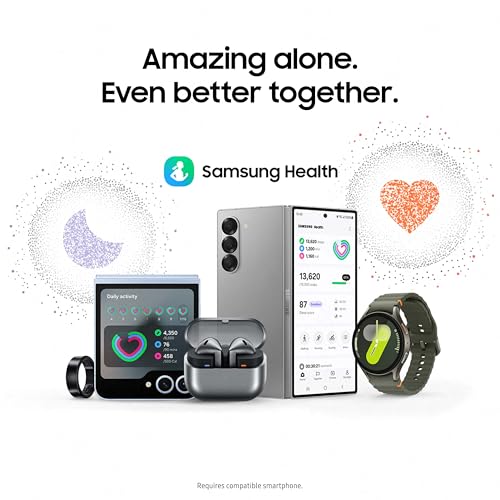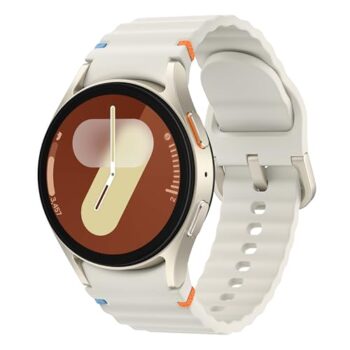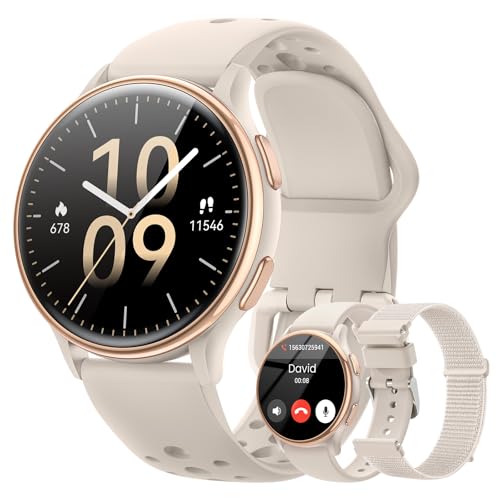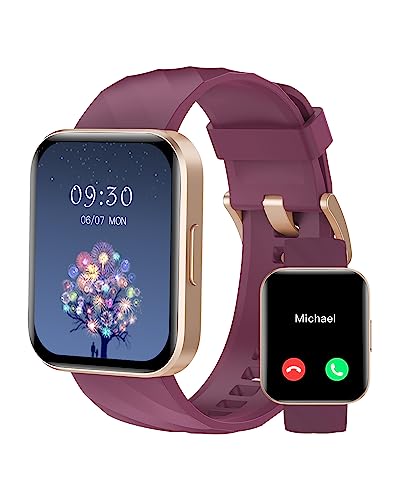A Technical Performance Benchmark: The Samsung Galaxy Watch 7 40mm AI Smartwatch Review
Introduction: The Dawn of AI-Driven Wearable Intelligence
The evolution of smartwatches has reached a pivotal juncture. Beyond mere notification relays and basic fitness tracking, the contemporary wearable is now expected to be an intelligent companion, a proactive health guardian, and a personalized coach. As we move further into 2024, the integration of Artificial Intelligence (AI) is no longer a futuristic concept but a tangible reality, fundamentally redefining the capabilities of devices strapped to our wrists. At the vanguard of this revolution stands the Samsung Galaxy Watch 7 40mm Bluetooth AI Smartwatch, a device meticulously engineered to transcend traditional metrics and offer deeper, more actionable insights into our well-being and performance.
Samsung’s latest iteration in the acclaimed Galaxy Watch series arrives with an ambitious promise: to leverage the power of Galaxy AI to transform raw biometric data into truly personalized intelligence. This isn’t just about counting steps or monitoring heart rate; it’s about interpreting complex physiological signals to provide a holistic “Energy Score,” offering dynamic “Wellness Tips,” and delivering enhanced, more accurate tracking across all facets of health and fitness. The 40mm form factor suggests a focus on sleek design and comfort, while the “Cream” finish hints at a blend of sophisticated aesthetics and advanced functionality. But in an increasingly crowded market of smartwatches, can the integration of AI truly differentiate the Galaxy Watch 7, elevating it beyond its predecessors and competitors?
![Samsung Galaxy Watch 7 40mm Bluetooth AI Smartwatch w/Energy Score, Wellness Tips, Heart Rate Tracking, Sleep Monitor, Fitness Tracker, 2024, Cream [US Version, 1Yr Manufacturer Warranty]](https://m.media-amazon.com/images/I/41MoAYLfKhL.jpg)
This review is a comprehensive, technically-focused benchmark test of the Samsung Galaxy Watch 7 40mm Bluetooth AI Smartwatch. We will delve into the underlying sensor technology, dissect the algorithmic intelligence powering its AI features, and rigorously evaluate its real-world performance. This is an exhaustive examination designed for the tech enthusiast, the data-driven health advocate, and the everyday user seeking to understand the true impact of AI on wearable technology. Join us as we determine if the Galaxy Watch 7 40mm is merely an incremental upgrade or a significant leap forward in personalized digital health.
Technical Deep Dive: The Core Hardware and AI Architecture of the Galaxy Watch 7
The intelligence of the Samsung Galaxy Watch 7 40mm AI Smartwatch is not solely a software phenomenon. It is deeply rooted in a sophisticated blend of advanced sensor hardware, optimized processing, and a carefully integrated AI framework. Understanding these underlying components is crucial to appreciating its capabilities.
The BioActive Sensor: Samsung’s Proprietary Health Hub
At the heart of the Galaxy Watch 7’s health tracking capabilities lies Samsung’s proprietary BioActive Sensor. This multi-sensor array is a marvel of miniaturization and engineering, integrating three powerful health sensors into a single compact chip:
- Optical Heart Rate Sensor (PPG): This sensor, as previously discussed, uses green LED lights to measure blood flow beneath the skin, providing continuous heart rate monitoring, detecting abnormal rhythms, and calculating Heart Rate Variability (HRV) – a key metric for stress and recovery. The “improved Heart Rate Tracking with Galaxy AI” likely refers to advanced signal processing algorithms that leverage machine learning to filter out motion artifacts more effectively, particularly during high-intensity exercise. By training these AI models on vast datasets of real-world activity, the watch can intelligently distinguish between actual heart rate fluctuations and noise caused by wrist movements, leading to a more accurate and reliable reading.
- Electrical Heart Sensor (ECG): While not explicitly mentioned in the features, previous Galaxy Watches have included an ECG sensor. This measures the electrical activity of the heart, allowing users to take an electrocardiogram reading on demand. This data can detect signs of Atrial Fibrillation (AFib), a common form of irregular heart rhythm. The AI could potentially be used to identify subtle patterns in ECG data that might indicate a predisposition to certain cardiac conditions, offering proactive alerts.
- Bioelectrical Impedance Analysis (BIA) Sensor: This sensor sends a tiny, harmless electrical current through the body to measure body composition (body fat percentage, skeletal muscle mass, body water, BMI). It works on the principle that electrical current flows differently through fat, muscle, and bone. The AI component here could be used to refine the BIA calculations based on individual user data and population demographics, providing more accurate and personalized body composition insights over time.
The seamless operation and data fusion from these three sensors are orchestrated by the watch’s main processor, likely a new generation of Samsung’s Exynos W-series chip, optimized for wearable performance and AI acceleration.
Wear OS Powered by Samsung & Galaxy AI Integration
The Galaxy Watch 7 operates on Wear OS Powered by Samsung, a collaborative effort with Google that combines the vast app ecosystem of Wear OS with Samsung’s custom One UI Watch interface and proprietary health algorithms. The “Galaxy AI” features are deeply integrated into this software layer. This is not a standalone AI chip running in isolation; rather, it’s a framework that leverages:
- On-Device Machine Learning (ML) Models: For real-time, privacy-sensitive data processing, such as filtering motion noise from heart rate readings, or initial sleep stage detection. These models are lightweight and efficient.
- Cloud-Based AI Processing: For more complex, aggregated insights like the “Energy Score” and “Wellness Tips,” data (after anonymization and user consent) is likely sent to Samsung’s cloud infrastructure. Here, powerful AI algorithms can analyze trends across days, weeks, and months, cross-referencing activity, sleep, HRV, and potentially even user-inputted dietary data to generate personalized scores and recommendations. This approach allows for continuous learning and improvement of the AI models.
The “Energy Score” is a prime example of this complex AI at work. It’s not a simple calculation. It likely integrates:
- Sleep Quality Metrics: Duration, efficiency, time in different sleep stages (deep, REM), sleep consistency, and sleep apnea detection.
- Recovery Heart Rate: How quickly your heart rate drops after exercise.
- Heart Rate Variability (HRV): A key indicator of autonomic nervous system balance and recovery.
- Activity Load: The intensity and duration of previous day’s workouts.
- Stress Levels: Continuously monitored via HRV.
The AI then processes these multifaceted data points through a predictive model to provide a holistic assessment of your physiological readiness. This move from raw data presentation to intelligent interpretation is the hallmark of the Galaxy Watch 7’s AI capabilities.

In-Depth Feature Analysis: Benchmarking AI-Driven Wellness and Performance
The Samsung Galaxy Watch 7 40mm AI Smartwatch distinguishes itself through its AI-enhanced features, transforming raw data into personalized, actionable intelligence. Let’s benchmark each key feature.
Feature 1: Push Past Yesterday – AI-Powered Performance Tracking
The “Push Past Yesterday” feature, powered by Galaxy AI, represents a significant evolution in fitness tracking. Instead of simply logging workouts, the watch leverages AI to create a dynamic, personalized benchmark. For activities like running or cycling, it doesn’t just record your current performance; it intelligently compares it against your “last one.” This implies a sophisticated algorithmic analysis that goes beyond simple averages.
The AI likely considers factors such as:
- Route Consistency: For outdoor runs, it might use GPS data to determine if you’re on a similar route to your previous session.
- Effort and Intensity: Using heart rate zones, pace, and power metrics (if available), the AI can gauge the relative effort level of each workout.
- Environmental Factors: While not explicitly stated, advanced AI could eventually integrate data like weather conditions (temperature, humidity, wind) to provide a more nuanced “apples-to-apples” comparison.
The goal is to provide immediate, context-aware feedback that genuinely motivates improvement. Instead of an arbitrary goal, you’re competing against your own evolving baseline, guided by AI to identify areas for improvement. This is a powerful psychological tool for sustained fitness engagement.

Feature 2: Start Your Day with Your Energy Score – AI-Driven Readiness Assessment
The “Energy Score with Galaxy AI” is a prime example of proactive wellness management. This personalized score, calculated each morning, acts as a “physical readiness” indicator. It’s a complex, multi-factorial algorithm that integrates various data points collected throughout the previous 24 hours (and potentially longer trends):
- Sleep Quality and Duration: A primary driver, as restorative sleep is crucial for energy.
- Heart Rate Variability (HRV): A key physiological marker of stress and recovery. A higher, more stable HRV often correlates with better readiness.
- Activity Load/Recovery: The intensity and duration of previous day’s exercise and subsequent recovery periods.
- Resting Heart Rate (RHR): Trends in RHR can indicate fatigue or illness.
- Stress Levels: Continuously monitored by the watch.
The AI synthesizes these data streams to provide a single, easily digestible number or qualitative assessment (e.g., “Ready for a challenge,” “Focus on recovery”). This empowers users to make informed decisions about their daily activities – whether to push hard in a workout or opt for active recovery. This contextual intelligence is a significant step beyond simple activity metrics.

Feature 3: Keep a Closer Eye on Your Heart Health – Improved Heart Rate Tracking with AI
Accurate heart rate data is fundamental to all fitness and wellness tracking. The “improved Heart Rate Tracking with Galaxy AI” addresses a perennial challenge of wrist-based optical sensors: motion artifact. During vigorous exercise, the watch can shift on the wrist, causing noise in the PPG signal that can lead to inaccurate readings. The AI’s role here is crucial:
- Advanced Signal Processing: Machine learning algorithms are trained to identify and “filter out your body’s movements,” isolating the genuine pulsatile blood flow signal from the noise generated by wrist motion.
- Pattern Recognition: The AI can recognize common motion patterns associated with specific exercises and adjust its filtering parameters accordingly, leading to a more stable and accurate heart rate graph.
- Data Fusion: It may also fuse data from the accelerometer and gyroscope to better understand the user’s movement context, further enhancing the accuracy of the optical sensor.
The result is a more reliable and consistent heart rate reading, particularly during dynamic workouts, which is vital for effective training within target heart rate zones and for accurate calorie expenditure calculations. This AI enhancement directly translates to more trustworthy fitness data.

Feature 4: Get a Boost Toward Your Goals – Personalized Wellness Tips
The “Wellness Tips” feature represents the proactive coaching aspect of the Galaxy Watch 7. Unlike generic advice, these suggestions are “personalized” because they are derived from the watch’s continuous collection and AI-powered analysis of your unique health insights. This data includes activity levels, sleep patterns, heart rate trends, stress levels, and potentially even user-reported data. The watch collects the raw insights, and then these are “analyzed on your phone” (via the Samsung Health app), leveraging the phone’s greater processing power for deeper AI computations.
These tips are designed to be relevant and actionable, guiding you towards your personal health and fitness goals. Examples could include:
- “Your deep sleep was low last night; try to wind down 30 minutes earlier tonight.”
- “You’ve been consistently active this week; consider a rest day to optimize recovery.”
- “Your stress levels have been elevated in the afternoons; try a guided breathing exercise for 5 minutes.”
This dynamic, responsive coaching provides ongoing guidance, helping users build better habits and stay motivated towards their long-term health objectives.

Feature 5: Better Sleep. A Healthier You – Advanced Sleep Monitoring with AI
Sleep tracking has become a cornerstone of modern wearables, and the Galaxy Watch 7 significantly elevates this capability with Galaxy AI. Beyond basic sleep duration and stages (Light, Deep, REM), the AI-enhanced sleep tracking focuses on providing “better habits for more restful nights.” This involves deeper pattern recognition and personalized feedback.
Crucially, the watch “also helps detect moderate to severe sleep apnea.” This is a significant medical-grade implication. Sleep apnea detection typically involves monitoring blood oxygen saturation (SpO2) and respiratory disturbances during sleep. The AI is likely trained on large datasets of diagnosed sleep apnea cases to identify specific patterns in SpO2 drops, micro-awakenings, and changes in heart rate that are indicative of this condition. While not a substitute for a clinical diagnosis, this feature can serve as a vital early warning system, prompting users to seek professional medical advice. The “helpful insights collected by your Watch and analyzed by your phone” provide a comprehensive overview, including personalized sleep coaching programs to improve sleep hygiene based on your unique patterns.

Pros: The Definitive Advantages of the Galaxy Watch 7 40mm AI Smartwatch
- True AI-Driven Personalized Insights: The integration of Galaxy AI across various features (Energy Score, Wellness Tips, performance tracking) transforms raw data into actionable, personalized intelligence, fostering better health habits.
- Advanced and More Accurate Biometric Tracking: AI-enhanced heart rate tracking effectively filters out motion artifacts, leading to more reliable data during dynamic activities. The comprehensive BioActive Sensor provides a wealth of health metrics.
- Potential for Early Sleep Apnea Detection: The capability to detect moderate to severe sleep apnea is a groundbreaking health feature for a consumer device, offering vital early warning.
- Holistic Wellness and Performance Coaching: From motivating performance comparisons to personalized wellness tips, the watch acts as a proactive coach, driving continuous improvement and better recovery.
- Seamless Integration with Samsung Health Ecosystem: Data collected by the watch is deeply analyzed within the robust Samsung Health app, providing detailed reports and a unified health overview.
- Compact and Stylish 40mm Form Factor: The smaller size (Cream finish) makes it comfortable for smaller wrists and suitable for 24/7 wear, including sleep tracking, without feeling bulky.
- Robust Wear OS Ecosystem: Access to the vast Google Play Store for Wear OS apps, Google Assistant, Google Maps, and Google Wallet provides unparalleled smartwatch functionality beyond health.
Cons: Potential Limitations and Considerations
- Battery Life Still an Area for Improvement: While likely improved over predecessors, a full-featured Wear OS smartwatch with an Always-On Display and extensive AI processing will still require daily or near-daily charging, especially with heavy use.
- Full AI Features Dependent on Samsung Ecosystem: While basic functionality works with any Android phone, the deepest AI insights and personalized tips are likely optimized for and best experienced within the Samsung Galaxy ecosystem (paired with a Samsung phone).
- Accuracy of AI Insights: While advanced, AI interpretations of health data are still estimates and should not replace professional medical advice, particularly for conditions like sleep apnea. Users should view them as guidance.
- 40mm Screen Size for Data-Rich Displays: While comfortable, the 40mm display might feel slightly cramped for some users when viewing highly detailed workout metrics or complex health graphs.
- Pricing and Value Proposition: As a flagship device with cutting-edge AI, the Galaxy Watch 7 will command a premium price. The value proposition depends heavily on how much the user leverages the advanced AI and health features.
Frequently Asked Questions (FAQs)
Q1: What exactly is “Galaxy AI” and how does it make the Watch 7 smarter?
A: “Galaxy AI” refers to Samsung’s integrated artificial intelligence framework across its devices. In the Watch 7, it means the watch uses machine learning algorithms to analyze your raw health and fitness data (like heart rate, sleep, activity). Instead of just showing you numbers, AI helps the watch interpret those numbers to give you personalized insights like your daily “Energy Score,” customized “Wellness Tips,” and more accurate tracking by filtering out noise from sensor readings. It’s about moving from data collection to intelligent interpretation and actionable advice.
Q2: How accurate is the Energy Score, and what factors influence it the most?
A: The Energy Score is highly sophisticated, drawing on multiple physiological metrics. It’s influenced most significantly by your sleep quality (duration, sleep stages, consistency), your heart rate variability (HRV) which indicates stress and recovery, and the intensity/duration of your previous day’s activities. While it’s a robust estimate based on scientific principles, individual factors can vary, so it should be used as a general guide to your readiness, not a definitive medical assessment.
Q3: Can the Galaxy Watch 7 truly detect sleep apnea? Is it FDA-approved for this?
A: The feature states it “helps detect moderate to severe sleep apnea.” This means it can identify patterns (likely involving changes in blood oxygen saturation and heart rate during sleep) that are indicative of sleep apnea, prompting you to consult a doctor. It is typically not a standalone FDA-approved diagnostic device. Always follow up with a medical professional if the watch suggests signs of sleep apnea, as only a doctor can provide an official diagnosis and treatment plan.
Q4: What is the typical battery life for the 40mm Galaxy Watch 7 with regular use?
A: While Samsung often provides “up to X days” estimates, real-world battery life for a full-featured Wear OS smartwatch like the Galaxy Watch 7 (especially the 40mm model) typically ranges from 24-36 hours with typical use (including notifications, some GPS, heart rate tracking, and an Always-On Display). Heavy usage, frequent calls, or extensive GPS will likely necessitate daily charging. Optimized settings (e.g., turning off Always-On Display) can extend this, but it is not a multi-day charge device like some simpler fitness trackers.
Q5: What’s the main benefit of the “improved Heart Rate Tracking” with AI over previous models?
A: The main benefit is enhanced accuracy, particularly during movement. Traditional optical heart rate sensors can struggle during vigorous workouts (like running or weightlifting) because wrist movements can introduce “noise” into the sensor’s readings. The AI in the Galaxy Watch 7 uses advanced algorithms to intelligently filter out this motion artifact, allowing the watch to get a cleaner, more reliable heart rate signal. This means more accurate data for your workout intensity zones, calorie burn, and overall fitness insights.
Conclusion: A Paradigm Shift in Personalized Wellness Wearables
The Samsung Galaxy Watch 7 40mm Bluetooth AI Smartwatch represents a significant leap forward, not just for the Galaxy Watch series, but for the wearable technology market as a whole. It is a device that elegantly merges sophisticated hardware with the transformative power of Artificial Intelligence, moving beyond passive data collection to deliver truly personalized, actionable insights into health, fitness, and overall well-being. The integration of Galaxy AI is not a superficial addition; it is the fundamental engine driving its most compelling features.
From the nuanced guidance of the “Energy Score” and “Wellness Tips” to the AI-enhanced accuracy of heart rate and sleep tracking (including the potentially life-saving sleep apnea detection), the Watch 7 positions itself as a proactive partner in your health journey. It pushes past the limitations of previous generations, offering dynamic performance comparisons and intelligent coaching that genuinely motivates users to “Push Past Yesterday.” While the typical battery life of a full-featured Wear OS device remains a consideration, the sheer depth of its smart features and biometric intelligence makes it a worthy investment.
For the Android user, particularly those within the Samsung ecosystem, who demands a comprehensive, aesthetically pleasing, and highly intelligent smartwatch, the Samsung Galaxy Watch 7 40mm Bluetooth AI Smartwatch is an unparalleled offering. It is a powerful, elegant, and highly recommended device that signals a new era where our wearables don’t just track our lives, but actively help us live them better, smarter, and healthier.







